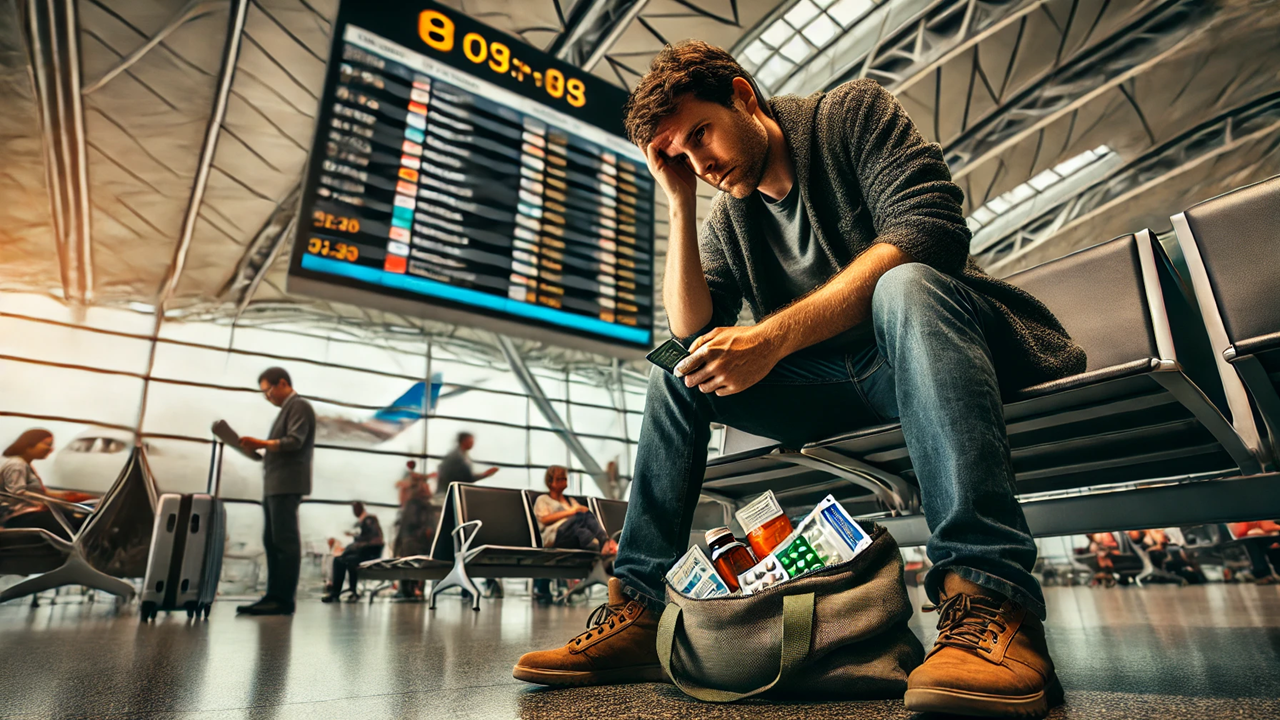Navigating the Hidden Dangers of International Travel: Mental, Neurological, and Substance Use Challenges
As international travel continues to grow in popularity, many travelers are unaware of the hidden challenges that may accompany their journeys, particularly those related to mental, neurological, and substance use (MNS) conditions. This article delves into the potential health risks that travelers may face, offering practical advice for both travelers and healthcare providers. It is based on the "International Travel and Health: Module 5 - Mental, Neurological, and Substance Use Conditions," published by the World Health Organization (WHO).

Traveling abroad can be an exhilarating experience, offering new sights, sounds, and cultures. However, for those with mental, neurological, or substance use (MNS) conditions, international travel can also bring about unforeseen challenges. The World Health Organization's (WHO) recent report, "International Travel and Health: Module 5 - Mental, Neurological, and Substance Use Conditions," sheds light on these often-overlooked aspects of travel, providing crucial insights and recommendations for both travelers and healthcare providers.
The Stress Factor: Exacerbating Pre-Existing Conditions
International travel can be a highly stressful experience, particularly for those who are venturing far from home. This stress, combined with the challenges of navigating unfamiliar environments, can exacerbate pre-existing mental and neurological conditions. For example, the disruption of circadian rhythms due to long-haul flights can trigger seizures in individuals with epilepsy or cause mood swings in those with bipolar disorder. Similarly, isolation from familiar social support systems may worsen symptoms of depression or anxiety, making it vital for travelers with these conditions to prepare thoroughly before their journey.
Healthcare providers should encourage their patients to plan, ensuring they have access to necessary medications and understand any legal restrictions in their destination country. Moreover, awareness of local healthcare services and the availability of emergency care is essential in mitigating potential risks.
The Importance of Pre-Travel Preparation
Preparation is key to reducing travel-related stress and managing MNS conditions effectively. The WHO report emphasizes the need for a comprehensive pre-travel consultation that includes a review of the traveler’s medical history, particularly their MNS conditions. Travelers should be equipped with a detailed plan, including carrying letters from their physicians certifying the need for specific medications, which may be restricted in some countries.
For those on psychotropic medications, adherence to treatment during travel is crucial. Healthcare providers should inform travelers of the potential risks of changing time zones and the impact on medication schedules, advising them on how to adjust dosages if necessary. In some cases, alternative medications may be needed to ensure the traveler’s safety and well-being.
Managing Mental and Neurological Conditions During Travel
The WHO report also delves into the specific challenges that different MNS conditions may pose during travel. Anxiety disorders, for instance, can be triggered by the uncertainties of travel, leading to panic attacks or heightened social anxiety. Depression may be exacerbated by the stress of travel and the sense of isolation from familiar environments. For individuals with psychotic disorders, the disruptions in routine and potential exposure to psychoactive substances can lead to dangerous episodes.
To mitigate these risks, healthcare providers should work closely with their patients, offering strategies for maintaining mental well-being during travel. This may include regular check-ins with a mental health professional, maintaining a consistent sleep schedule, and utilizing relaxation techniques to manage anxiety. For more severe conditions, such as schizophrenia or bipolar disorder, it may be necessary to arrange for a support network of caregivers or travel companions.
Substance Use Disorders: A Hidden Risk
Substance use disorders present their own set of challenges during international travel. The availability and legality of certain substances can vary widely from one country to another, and travelers may find themselves in situations where their usual coping mechanisms are unavailable or illegal. The WHO report highlights the importance of pre-travel counseling for individuals with substance use disorders, advising them to be aware of the potential risks and to seek alternatives for managing their condition during travel.
In cases where travelers are dependent on controlled substances, such as opioids or benzodiazepines, it is essential to carry documentation that justifies their use and to understand the legal implications in the destination country. Healthcare providers should also discuss harm reduction strategies and the availability of emergency care in the event of an overdose or withdrawal symptoms.
- FIRST PUBLISHED IN:
- Devdiscourse
ALSO READ
Global Health Watch: China's Mental Health Initiative and Pharma Highlights
CISF's Game-Changing Mental Health Initiatives Slash Suicide Rates
China's Growing Focus on Mental Health: A Nationwide Initiative
AI and empathy: Transforming mental health care with novel approach
China's New Mental Health Initiative Targets Youth and Innovation










